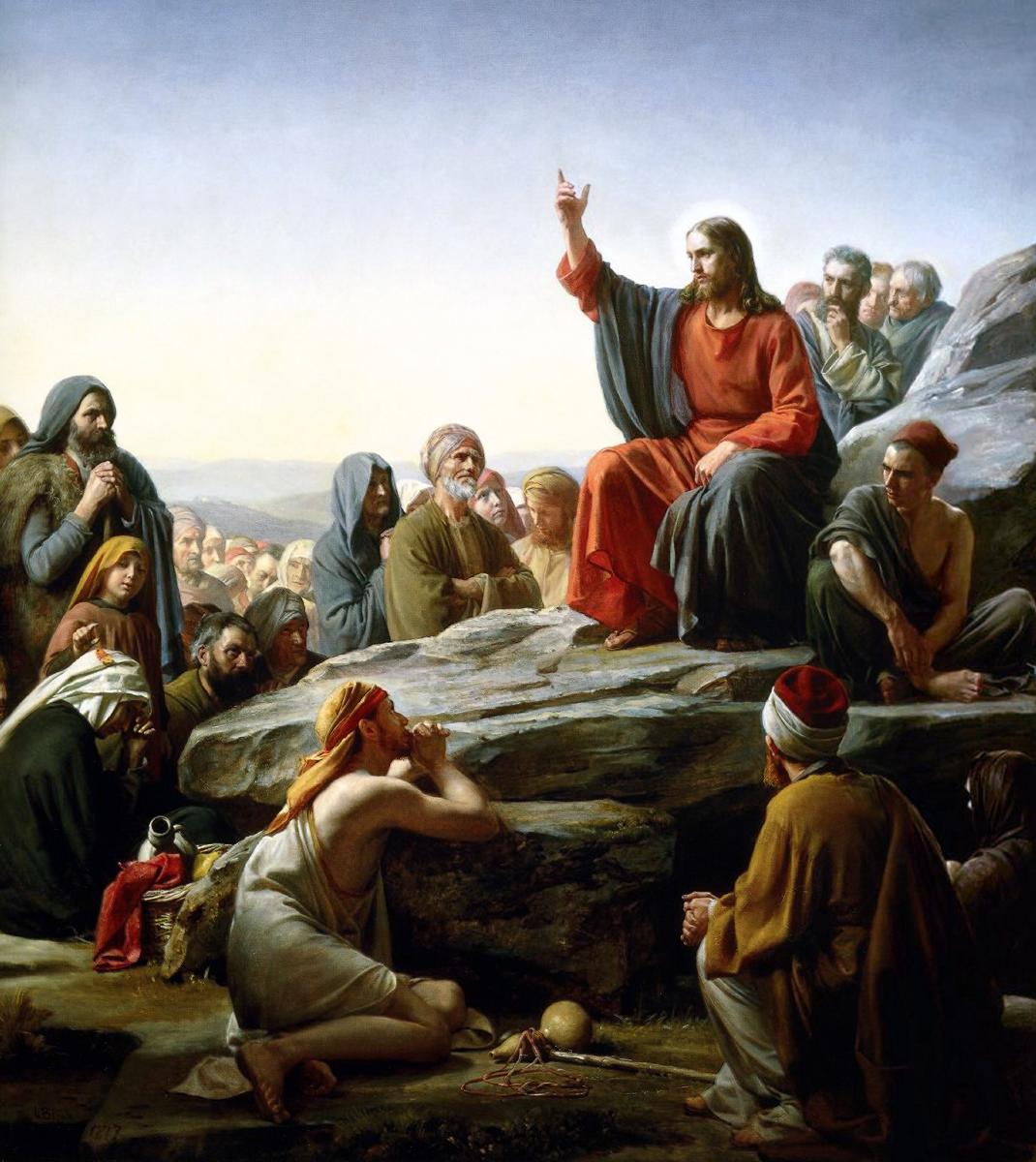March 12: Our Father
♫ Music:
Wednesday, March 12—Day 8
“Pray, then, in this way:
Our Father who is in heaven,
Hallowed be Your name.
Your kingdom come.
Your will be done,
On earth as it is in heaven.
Give us this day our daily bread.
And forgive us our debts,
as we also have forgiven our debtors.
And do not lead us into temptation,
but deliver us from evil.
For Yours is the kingdom
and the power
and the glory forever.
Amen.”
Matthew 6:9-13
Our Father
I knew the music of “The Lord’s Prayer” before I knew the words. My mother is a violinist, and when I was growing up she would often play Malotte’s setting of “The Lord’s Prayer” as a violin solo: at Sunday morning church as an offertory; at “singspiration” events on Sunday nights; and often at weddings and funerals. Just last year she played it at my own wedding. Three years before that she played it at her mother — my grandmother’s — funeral.
I didn’t need to hear the words. I knew them. The beauty of the melody calls to mind the powerful language, uttered in my heart and soul each time I hear the song.
One of the most powerful things about The Lord’s Prayer is its simplicity. It is short, direct, yet powerfully comprehensive. Christ instructs his disciples in this manner of prayer, in contrast to the showy “babbling” and excessively talky (“many words”) prayers of the pagans (Matt. 6:7). He provides this model of prayer also in contrast to the hypocrites who “love to pray standing in the synagogues and on the street corners to be seen by others.” For them, praying is more about themselves than it is about God. It’s about drawing attention to their own righteousness.
But this is not what prayer should be. The prayer Christ instructs us to pray has its priorities in order, placing God first and man second. In his commentary on the Sermon on the Mount, R. Kent Hughes notes that the first three requests of this prayer have to do with God’s glory, followed by three requests for our well-being. This parallels the Ten Commandments, which start with four commandments about God’s glory followed by six related to man’s well-being. “God first, man second — that is the ideal order of prayer,” writes Hughes.
The heart of Lent is, I think, similar to what Christ advises us here with prayer: simplicity over adornment; focus on God above ourselves; quiet reverence over “public display” hypocrisy. Lent can easily become a showcase for our own self-discipline and a prideful display of “look what I gave up!” faux piety. So can prayer. But the Lord’s Prayer leads away from all of that.
The Lord’s Prayer begins with God’s hallowed name and ends with His eternal glory. In it we submit to God’s will, declare His kingdom reign and express our reliance on Him for sustenance, forgiveness and deliverance. The prayer is an expression of our smallness and God’s bigness. It’s a prayer of humility, positioning us in our proper posture before the throne of God. It’s a prayer befitting weddings, funerals, mornings, evenings, Advent, Lent and every other season of our life. It’s about God’s forever faithfulness to the people who call him “Our Father.”
For His is the kingdom and the power and the glory forever. Amen.
Prayer
Our Father in heaven,
Reveal who you are.
Set the world right;
Do what’s best—
as above, so below.
Keep us alive with three square meals.
Keep us forgiven with you and forgiving others.
Keep us safe from ourselves and the Devil.
You’re in charge!
You can do anything you want!
You’re ablaze in beauty!
Yes. Yes. Yes.
Amen.
(The Message)
Brett McCracken, Managing Editor of Biola Magazine
Day 8—Wednesday, March 12
Sermon on the Mount
Carl Heinrich Bloch
Frederiksborg Palace
Oil on canvas
About the Artist and Art
Born in Copenhagen, Denmark, Carl Heinrich Bloch (1834-1890) was a painter who studied at the Royal Danish Academy of Art. He traveled to Italy by way of the Netherlands, where he was strongly influenced by the work of Rembrandt. His early work featured rural scenes from everyday life, which eventually transitioned to lofty altarpiece paintings of the life of Christ. Between 1865 and 1879, Bloch was commissioned to paint 23 paintings for the Chapel at Frederiksborg Palace, one of which was the Sermon on the Mount.
About the Music
The Lord’s Prayer lyrics:
Our Father, which art in heaven,
Hallowed be thy awesome Name.
Thy Kingdom come.
Thy will be done in earth,
As it is in heaven.
Give us this day our daily bread.
And forgive us our debts,
As we forgive our debtors
And lead us not into temptation,
But deliver us from evil.
For thine is the kingdom,
And The power, and the glory,
For evermore and evermore.
Amen.
About the Performers
The King’s Men are a six member, vocal a cappella ensemble from the Conservatory of Music at Biola University. Their director, Walt Harrah, arranges the music they sing. They represent the university in concerts throughout Southern California and beyond.
http://academics1.biola.edu/music/booking/kings-men/
Composer
Albert Hay Malotte (1895-1964) was an American pianist, organist, composer and educator. His career as an organist began in Chicago where he played for silent pictures and later concertized throughout the U.S. and Europe. He composed a number of film scores, including mostly uncredited music for animations from the Disney studios. He was most well known, however, for this setting of the Lord's Prayer.
